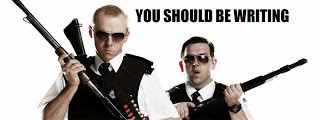For the longest time, I wasn’t sure I was going to finish this article. Or even start it, for that matter. In fact, I’d just about decided to email Lisabet and tell her I wouldn’t have anything this month.
Because when it comes to my writing, I usually have an idea of what I’m going to say well in advance, and then I usually spend days going over the article until I feel like it’s fit for human consumption.
But this time around, I didn’t think I had the energy because on top of my deadline for ERWA, I’d also added a few more because my ambitions are many while my resources (time, sleep, sanity, etc.) are few.
I had an article on depression to post to Medium, a flash fiction story to post on Simily, a short story that I’d been trying to edit for days, another short story to submit for a horror contest next month, agents to find for the children’s book I’d just had edited, my other children’s books to send to the same editor for polishing, the first book in a sci-fi series on its second or third revision and a pesky screenplay I’ve been meaning to get back to.
And it was during my writing of the article on depression that I literally wrote the line, ‘The only one pushing me, is me.’
I wanted to smack myself upside the head. I probably would have, if I hadn’t been so tired.
In the interest of sanity, I decided I would set a limit as to how much I could legitimately get done. I would revise this post once, and then publish it, regardless of how ugly it might be. Because forward momentum is great but there is a difference between moving forward and crashing forward and I would like to avoid one at all possible.
If I weren’t as white as a ghost, I would say I was practically freestylin’, but even writing that down makes me feel awkward.
To be perfectly honest, I have no idea how I’m going to end this article. The only thing that comes to mind is a quote from a famous author whose name I can’t remember about how procrastinators and perfectionists are their own worst enemies and I know I can find that quote if you give me a second, hang on. Don’t fail me now, Google. Okay, here we go. Pro-cras-tin-a-tors and per-fec-tion-ists are their own worst…dammit…












